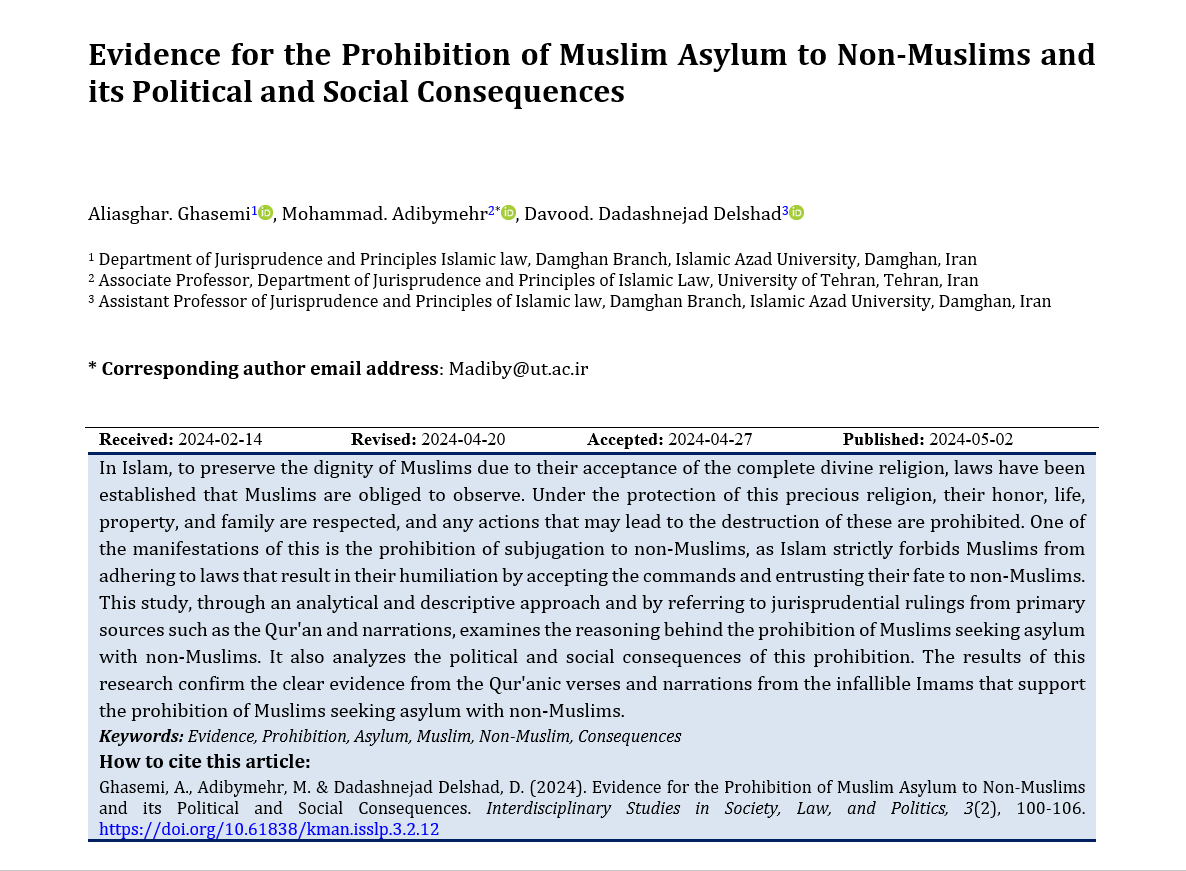Evidence for the Prohibition of Muslim Asylum to Non-Muslims and its Political and Social Consequences
Keywords:
Evidence, Prohibition, Asylum, Muslim, Non-Muslim, ConsequencesAbstract
In Islam, to preserve the dignity of Muslims due to their acceptance of the complete divine religion, laws have been established that Muslims are obliged to observe. Under the protection of this precious religion, their honor, life, property, and family are respected, and any actions that may lead to the destruction of these are prohibited. One of the manifestations of this is the prohibition of subjugation to non-Muslims, as Islam strictly forbids Muslims from adhering to laws that result in their humiliation by accepting the commands and entrusting their fate to non-Muslims. This study, through an analytical and descriptive approach and by referring to jurisprudential rulings from primary sources such as the Qur'an and narrations, examines the reasoning behind the prohibition of Muslims seeking asylum with non-Muslims. It also analyzes the political and social consequences of this prohibition. The results of this research confirm the clear evidence from the Qur'anic verses and narrations from the infallible Imams that support the prohibition of Muslims seeking asylum with non-Muslims.
Downloads






